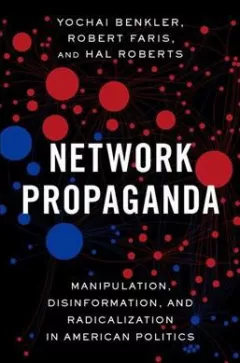
In Network Propaganda, Yochai Benkler, Robert Faris, and Hal Roberts illuminate the new “media ecosystem” through an analysis of how political news was linked, liked, and shared from 2015 to 2018 and how the news media either amplified or checked the diffusion of falsehoods. The study is based on four million political stories from 40,000 online sources, as well as case studies of conspiracy stories, rumors, and outright disinformation.
Even though perfect objectivity is impossible and truth is “necessarily provisional,” Benkler and his colleagues write, truth-seeking organizations function differently from organizations set up to produce propaganda. While they are not always successful, the media that observe journalistic standards of truth make it possible to stop lies in their tracks. They give us some hope that a democratic society can reach a rational understanding of the world.



